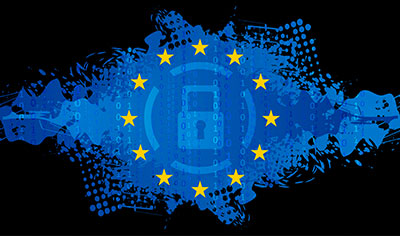European companies face the dual challenge of harnessing the transformative power of Artificial Intelligence, while adhering to stringent data privacy regulations. Striking this delicate balance is not merely a legal obligation but a strategic imperative to remain competitive in the global market.
Understanding the Regulatory Terrain
Europe has been at the forefront of data protection with the introduction of the General Data Protection Regulation (GDPR) in 2018. This comprehensive framework mandates strict guidelines on the collection, processing, and storage of personal data, ensuring individuals’ privacy rights are upheld. Non-compliance can lead to significant fines and reputational damage.
Building upon this foundation, the European Union has proposed the Artificial Intelligence Act (EU AI Act), aiming to regulate AI applications based on their risk levels. The Act categorises AI systems from minimal to unacceptable risk, imposing varying compliance obligations accordingly. High-risk AI systems, for instance, will be subject to rigorous requirements to ensure safety, transparency, and accountability. KPMG

The Innovation-Compliance Conundrum
Integrating AI into business operations offers unparalleled opportunities—from automating routine tasks to deriving insightful analytics that inform strategic decisions. However, the deployment of AI often involves processing vast amounts of data, some of which may be personal or sensitive. This intersection of AI and data privacy presents a complex challenge: how can companies innovate without infringing upon stringent privacy laws?
A critical concern is the potential for AI systems to inadvertently perpetuate biases or make opaque decisions, leading to ethical and legal ramifications. For example, an AI-driven recruitment tool might unintentionally favour certain demographics if trained on biased data, resulting in discriminatory hiring practices. Such outcomes not only violate ethical standards but can also contravene GDPR provisions related to fairness and transparency.
Strategies for Harmonising AI Innovation with Privacy Compliance

Conduct Comprehensive AI Risk Assessments: Before deploying AI systems, undertake thorough evaluations to identify potential risks, especially concerning data privacy. This proactive approach enables the implementation of mitigating measures from the outset.
Implement Robust Data Governance Frameworks: Establish clear policies and procedures governing data collection, processing, and storage. Ensure that data used in AI systems is anonymised or pseudonymised where possible, minimising the risk of identifying individuals.
Foster Transparency and Explainability: Design AI systems that can provide clear explanations for their decisions. This transparency not only builds trust with stakeholders but also aligns with GDPR’s emphasis on individuals’ rights to understand automated decisions affecting them. GDPR Local
Engage Data Protection Officers (DPOs): Involve DPOs in AI development and deployment processes to ensure that privacy considerations are integrated at every stage. Their expertise can guide the organisation in navigating complex regulatory landscapes. data-privacy-office.eu
Stay Abreast of Regulatory Developments: The legal landscape for AI and data privacy is continually evolving. Regularly monitor updates to regulations like the EU AI Act to ensure ongoing compliance and to anticipate future requirements. navex.com
Invest in Employee Training: Equip staff with the knowledge to understand both the capabilities of AI and the importance of data privacy. A well-informed team can better identify potential compliance issues and contribute to ethical AI practices.
European Companies Embracing Privacy as a Competitive Advantage
Rather than viewing compliance as a hindrance, European companies can leverage stringent privacy standards as a differentiator in the market. Demonstrating a commitment to ethical AI and robust data protection can enhance brand reputation, build customer trust, and open doors to new business opportunities.
Moreover, aligning AI initiatives with privacy regulations can drive innovation by encouraging the development of solutions that prioritise user rights and ethical considerations. This approach not only mitigates legal risks but also positions companies as leaders in responsible AI deployment.
Final Thought
Navigating the intersection of AI innovation and data privacy is undoubtedly challenging. However, by adopting strategic measures that prioritise compliance without stifling innovation, European companies can harness the full potential of AI technologies. In doing so, they not only adhere to regulatory mandates but also cultivate a culture of trust and responsibility that resonates with customers and stakeholders alike.
Victor A. Lausas
Chief Executive Officer




